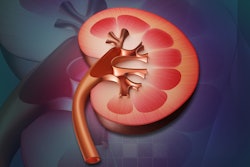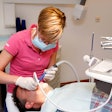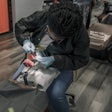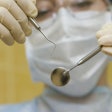Two weeks ago, I held my first inaugural retreat in Carolina Beach, NC, with dental hygienists who wanted to be better clinicians, who wanted to potentially branch out and try something new, but ultimately wanted to work in their purpose and live a life fulfilled. After nearly 27 years in academia and consulting, I've learned that sometimes we gain as much wisdom from our "students" as they do from us.
What's the truth about your professional identity?
Sometimes we can't find our place in a practice -- or any vocation -- because we carry conflicted emotions between what we genuinely want and what our past experiences have conditioned us to believe. The thoughts we carry about ourselves aren't always the truth. Many times, these thoughts are based on past experiences that shaped how we define ourselves professionally.
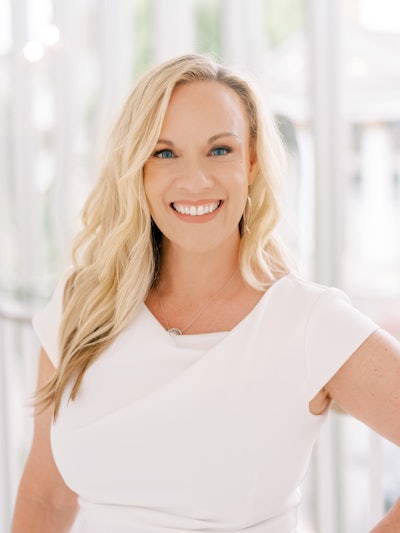 Kelly Tanner, PhD, RDH.
Kelly Tanner, PhD, RDH.
We also hold onto words that others have said about us, especially from our formative years, and we live out these phrases as if they were absolute truths. As evidence-based professionals, we excel at applying scientific rigor to clinical decisions. But when it comes to human behavior and personal beliefs, we may need to shift our thinking beyond traditional evidence-based approaches. The "data" we've collected about ourselves over the years -- often from limited experiences or biased sources -- may not represent the full picture of our potential. Just as we update our clinical protocols when new research emerges, we must be willing to question the outdated "research" we've conducted on ourselves.
Repression vs. expression in your career
What does this have to do with dentistry and dental hygiene? Everything. When we feel ourselves needing to grow beyond our comfort zone -- perhaps to express a new treatment philosophy, advocate for patients differently, or take on leadership roles -- it requires different energy and direction. What we cannot express, we repress, and this often leads to professional dissatisfaction.
The challenge arises when we must determine whether what we want aligns with the story we're telling ourselves. For example, if you want to increase your practice income or earn more as a hygienist, but deep down you believe that people who make good money are somehow greedy, you're in conflict with your own values. This subconscious belief will sabotage your efforts, creating a cycle of self-defeat.
I've worked with dental professionals who want to become practice owners, case presenters, or continuing education speakers, but who hold deep-seated beliefs that being visible or influential is somehow dangerous. That survival instinct -- the fear of being "too much" or standing out -- will always override their conscious goals.
If you're living in the same professional cycles and aren't reaching your desired outcomes -- whether in income, career advancement, or patient relationships -- it's time to upgrade your "thoughtware."
Five science-based steps to professional alignment
Here are evidence-based actions to help you identify limiting beliefs and align them with the outcomes you desire:
1. Sit quietly: Create space for honest self-reflection without the noise of daily practice demands.
2. Get heart-centered: People can typically access this feeling by thinking about a small baby animal -- yes, that warm feeling in your heart that makes you smile. In your professional context, it's the same genuine care you feel when you think about helping a patient achieve optimal oral health. This heart-centered state connects you to your deeper professional "why."
3. Feel the frequency of your desired professional state: If you want confidence in case presentation, how would that feel in your body? Would you feel grounded? Relaxed? Authoritative? The key isn't just visualizing success -- it's embodying the feeling of that success.
4. Neutrally observe your feelings: As you connect with your desired professional state, notice what emotions arise. Don't judge them -- simply observe. Is it fear? Imposter syndrome? Guilt about charging appropriate fees? Name these feelings without criticism.
5. Reframe your professional story: When we suppress our professional aspirations, we block the energy that could fuel our growth. Energy isn't meant to be blocked, it's meant to flow into purposeful action.
Choosing professional adventure
The truth is that you can create a new professional reality at any time. To experience more satisfaction in your dental career and achieve greater alignment with your values, choose adventure over safety. You cannot change what has already happened in your career, but you can choose how to move forward.
The adventure begins when we release our rigid, evidence-based approach to our own potential and let go of preconceived notions about what's possible for us professionally. This means giving grace to ourselves and our colleagues, recognizing that we are constantly evolving, and understanding that whatever we decide to believe about our capabilities becomes our reality.
Your dental career is not a fixed entity -- it's a dynamic expression of your values, skills, and chosen beliefs. When you align these elements, you don't just become a better clinician; you become a more fulfilled professional who can serve patients from a place of authentic purpose.
Kelly Tanner, PhD, RDH, is a contributing author to DrBicuspid, where she shares insights and strategies to empower dental hygienists in their careers. As a leader in clinical training, professional development, and team dynamics, Tanner provides resources to help hygienists elevate their practice and personal growth. For further support, join her free Facebook group, Next Level Dental Hygiene Career and Personal Development, and explore group training and on-demand courses at www.nextleveldentalhygiene.com.
The comments and observations expressed herein do not necessarily reflect the opinions of DrBicuspid.com, nor should they be construed as an endorsement or admonishment of any particular idea, vendor, or organization.






